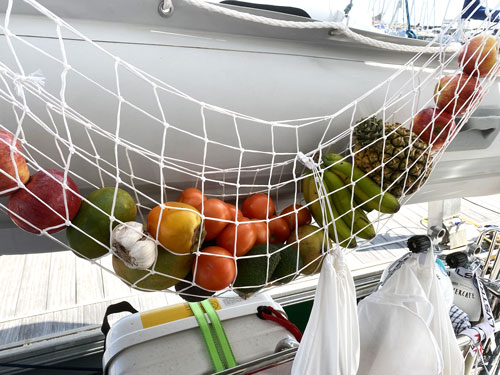Provisioning
It’s now a year ago, that I had already finished my provisioning list. Last autumn, when it was getting grey and we couldn’t talk often enough about the new life from summer on, I started to work on the provisions for the trip.
Some things I still knew about our last crossing and many things were in the subject: Travel > Remember me. My important book is: Preserving, preserving, fermenting.
Basically you can say that provisions are only important for the big crossings. Otherwise you can find food wherever people live.
Some things I really missed on the last trip. Genuine yoghurt with yoghurt cultures. Black bread, good nuts, apples or even pears are also more of a northern European component of the diet.
With all this in mind, I opened my food table and … well, I have to say, after looking through it twice, I simply deleted it again. My first idea at that time was to see what proportions of carbohydrates, proteins, fats etc. a person needs. Then I put together the appropriate foods, multiplied by crew members … voila. Done … I thought.
Now everything is much better … I think.
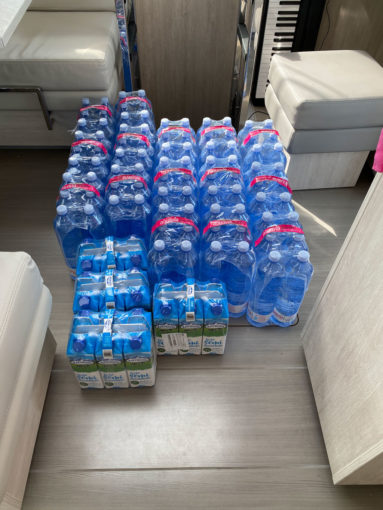
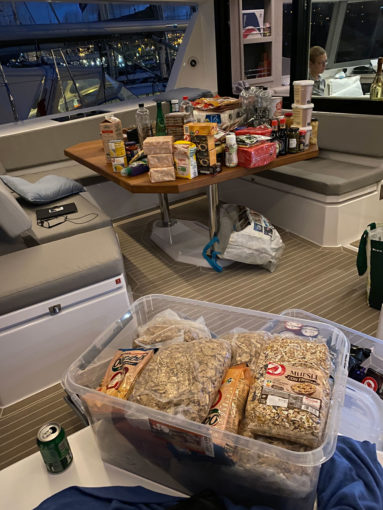
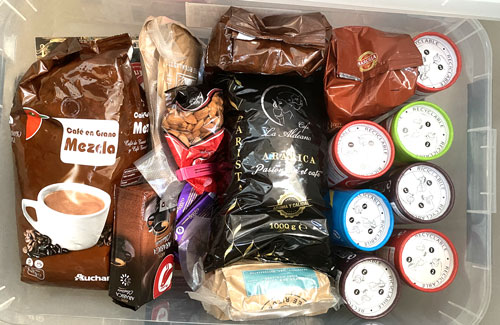
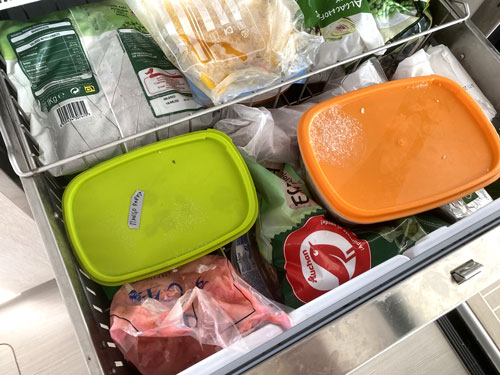
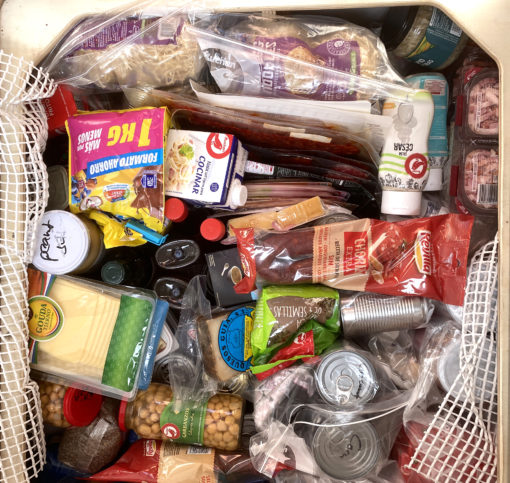
There are a lot of things that are completely different from on land. Food is sorted according to shelf life. What spoils quickly is cooked first. In the freezer, which holds 50 litres, there is meat, fish, poultry and some things that we will precook.
The new system looks like this:
Since we all want to eat a main meal together in the evening, a list of 16 dishes and recipes is hung on the notice board. The recipes are all easy to cook, should be tasty and healthy at the same time, do not take long to prepare and, most importantly, do not require more than 3 hotplates.
Jana and I have packed one bag per main meal in which all dry food and canned food is stored. There is also a breakfast box, a snack box and everything else that fits on a sandwich.
At the stern of the ship hangs a net in which fruit and vegetables are stored. We buy them fresh from the market so that they are not refrigerated on the last day before the journey. Lemons do not get along with anything, so they hang in a separate net. Eggs are also bought fresh, not refrigerated and have to be turned every day.
On the menu are curries, pea stew, risotto, potato dishes, wok vegetable pans etc. Then there are the fishes, which should bring us delicious fresh tuna or mahi mahi. For this case I have put together a delicious marinade.
So we will not starve.
When we went shopping yesterday, I noticed that each of us also put some of our favourite food in the basket. I packed mustard – without which I’m virtually unable to cook meat -, Holger packed lots of good snacks for the night shifts and Jana came to the shopping trolley with a sack of nuts (5000 gr.), which will be gone faster than we can look.
There is only non-alcoholic to drink on the Crossing and I already know that we will all jump for the rum punch that awaits us at the pier in St. Lucia.
If we are hungry after all, I will let you know (I promise) after the crossing.
Greetings and hugs to Karin, who has become really hungry now. / Karin Binz

